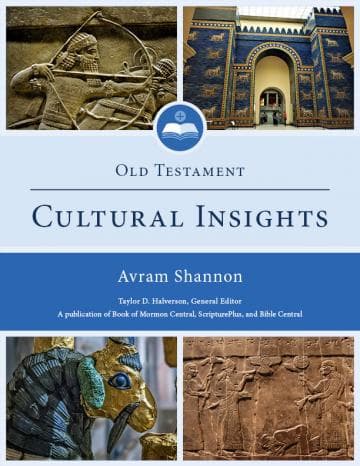Book
71 Chapters

The tribe of Judah is one of the twelve tribes of Israel, claiming descent from Jacob through Jacob’s first wife, Leah. During biblical times and after, Judah was one of the most important and prominent tribes. Part of this prominence is the fact that the tribe of Judah is primarily responsible for the production of much of the biblical record. Indeed, it would not be a mistake to refer to the Bible as a Judahite record as the Book of Mormon does (see 1 Nephi 13:23). Because of this, prominent members of the tribe of Judah mentioned in the Bible are almost too numerous to mention. Caleb, David (and all his descendants, including Jesus), Isaiah, and Nehemiah were all members of the tribe of Judah. At a certain point, the biblical story becomes primarily the story of the tribe of Judah.
Jacob’s blessing to his son Judah indicates something of the prominence that the tribe of Judah had in ancient Israel. Using a wordplay on Judah’s name, Jacob promises, “Judah, thou art he whom thy brethren shall praise . . . thy father’s children shall bow down before thee” (Genesis 49:8). Later in the Bible, this preeminence is associated with David and the kingship of the United Kingdom of Israel, and then of the Kingdom of Judah. The tribal allotment of Judah is given in Joshua 15:1–63.
There are numerous narratives in the Bible about the tribe of Judah (a reminder that this is a Judahite narrative). Judges 1 contains a description of a campaign of conquest waged by Judah after the death of Joshua. Men of the tribe of Judah negotiated with Samson in order to hand him over to the Philistines to save their city from attack from the Philistines (Judges 15:9–13). There is a sense in the Bible that the tribe of Judah was a bit aloof from the other Israelite tribes. For example, when Saul numbers his army before fighting with Nahash and the Ammonites, Israel is numbered all together with three hundred thousand troops, and then Judah is listed separately with thirty thousand troops (1 Samuel 11:8; see also 1 Samuel 15:4). Similarly, in 1 Samuel 18:16, Israel and Judah are listed separately in their love and support for David.
After the death of Saul, the tribe of Judah anointed David as king instead of Ishboseth, Saul’s son (2 Samuel 2:4–10). After his victory over the house of Saul, David is installed as king over both the tribe of Judah and the other tribes (2 Samuel 5:5). After the death of David’s son, Solomon, the people complain that Solomon’s policies favored the tribe of Judah over the other tribes, which ultimately led to their rebellion (1 Kings 12:1–12).
When Jehovah takes away the entire kingdom of Israel from David’s grandson, Rehoboam, he reserved one tribe (Judah) for the house of David, as part of the promises of the covenant he made with David in 2 Samuel 7:12–17. The prophet Ahijah told Jeroboam the son of Nebat, “But he [Rehoboam] shall have one tribe for my servant David’s sake, and for Jerusalem’s sake, the city which I have chosen out of the tribes of Israel” (1 Kings 11:32). From this point, until the Neo-Babylonian Empire carried the people of Judah into exile, the Kingdom of Judah was a separate kingdom. This kingdom was largely, but not exclusively, made up of members of the tribe of Judah. Lehi and his family were citizens of the Kingdom of Judah who claimed descent from Joseph through Manasseh. After the Babylonian exile, pragmatically Judah was the only remaining tribe.
According to later Jewish interpretive tradition, each tribe was assigned a stone, a flag color, and a symbol for that flag. Judah’s stone was a carbuncle, the tribal flag was sky blue, and its symbol was a lion.1 This symbol was derived from the description of Judah as a lion’s whelp in Jacob’s blessing in Genesis 49:8–12.
Genesis 38:27–30
Deuteronomy 33:7
Joshua 15:1–63
Judges 1
Judges 15:9–13
1 Samuel 11:8
2 Samuel 5:5
1 Kings 11:32
Book
71 Chapters
Items in the BMC Archive are made publicly available for non-commercial, private use. Inclusion within the BMC Archive does not imply endorsement. Items do not represent the official views of The Church of Jesus Christ of Latter-day Saints or of Book of Mormon Central.